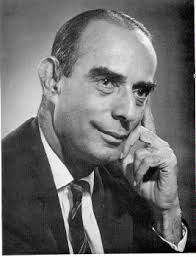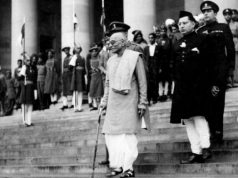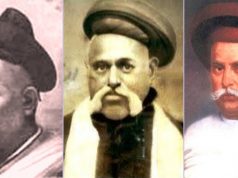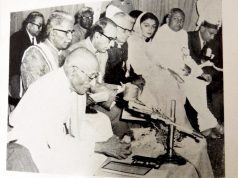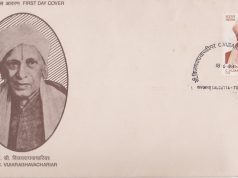This piece is based on a speech given in the Parliament by M R Masani, who was an MP at the time. It was published in the February 1970 issue of ‘Freedom First.’ In the piece, Masani talks about the problems with with the MRTP bill that had been introduced in the parliament–and how the real threat of concentration of economic power came not from private businesses, but from the state.
I speak for a party which believes in competition. That is the classical Liberal school of economics. We believe that any restriction on competition is prima facie undesirable, though in rare cases it can be connived at by the State for social purposes. We believe that competition is a therapeutic element which cures a lot of things including exploitation of the consumer and many other malpractices. Therefore, we are vigorously opposed to all restrictive trade practices and to monopolies of any kind.
We are also opposed to concentration of power in the same hands, whether it is concentration of economic power or a combination of economic and political power. This Liberal point of view is not really different from an intelligent Democratic Socialist point of view.
We believe in the ballot of the market place, where the consumer decides the pattern of production. We are prepared to support any anti-monopoly legislation which is honest and genuine. It is against this very friendly background that we judge the Monopolies and Restrictive Trade Practices Bill.
We find the Bill terribly disappointing because it is not an anti-monopolies Bill at all. It was bad enough when it was introduced in Parliament. Even then it was not on the lines of the draft Bill attached to the Das Gupta Commission’s Report. It was a Bill entirely different from what the earlier Monopolies Commission had recommended. After coming back from the Joint Committee, I regret to say that the Bill has got much worse, and it is a great pity that it should be so.
Let me turn to some features of the Bill and show why I say it is a bad Bill. The first is that the Bill does nothing to stop monopoly. Monopoly is a hundred per cent domination or control or possession of production of a particular article or commodity. Judged by that test, there is not a single monopoly outside Government enterprises. I will mention three. The Life Insurance Corporation is a hundred per cent monopoly because when anyone tries to compete with LIC he can be punished and sent to jail. The Indian Airlines Corporation is another monopoly, and Air India International is a third one. Then, the Indian Railways are a monopoly. Telegraphs are a hundred per cent monopoly, telephones are a hundred per cent monopoly, All India Radio is a hundred per cent monopoly. There are partial monopolies also. There is the STC MMTC, FCI, and so on.
Now, the sad thing is that all these State monopolies, which are the only monopolies in India, are specifically excluded from the purview of the Bill.
Therefore, the first aspect of the Bill is that it does not deal with the only monopolies that exist; it pretends to deal with non-existent monopolies that do not exist.
The Government monopolies are the worst monopolies, because they are irresponsible. Private monopolies have the police power of the Government to check them. There is the doctrine of countervailing power between the corporation and the Government. But where the government becomes a factory-owner or the factory-owner is the same as the policeman, there is no appeal. So the poor consumer who has to buy from the Government enterprises is completely at the mercy of the Government monopolies. The worker in the establishment also has no right to appeal to any third-party. That is why I would call the doctrine embodied in this Bill industrial feudalism of the most reactionary kind. The Bill is a fraud on the people of India because it pretends to fight monopoly while it does nothing of the kind.
A second aspect of the Bill is the way in which the Commission that is sought to be appointed is downgraded into a mere advisory body while all real power is to be exercised by the Minister. That is the second aspect of the Bill which we cannot accept as being honestly anti-monopoly.
A third aspect of the Bill which does not commend itself to us is that it tries to restrict competition. It does not foster competition as an anti-monopoly Bill should. It restricts competition in two ways. First of all, it restricts competition between private enterprises and State enterprises by giving the latter a complete monopoly. Secondly, as between private enterprises, it gives the power to stop free competition by inhibiting real competition between rival private enterprises by using their permit-licence powers and their anti-monopoly powers.
The entire Bill is based on a confusion between size and monopoly. Size and monopoly have nothing to do with each other. You can have a small concern completely dominating the market in a particular product and it would be monopolistic, even if it is small. You can have giant companies like the American automobile companies, fighting a struggle to the death in competition; yet, none of them would be a monopoly. This elementary distinction between size and monopoly has been completely ignored by this Bill.
That brings me to ask the question: Why did they introduce this Bill? I can only say that, as in Russian and Yugoslavia about which Mr Milovan Djilas, the well-known Yugoslav Communist, has written in his book, The New Class, there is a New Class in India also. It is this class which exploits its political power to get its hands on the economy and to extort what Karl Max would have called ‘surplus value’ out of the peasants and workers and the middle class of this country.
Ours is a mixed economy. So it is a mixed class. This class has three heads–the political head, the official head and the business head outside–who conspire to loot this country and squeeze out the hard-earned earnings of the common people. If there is one vested interest in India today, it is the one symbolised by this government today, corrupt officials–such of them as are corrupt–and corrupt businessmen outside who join hands to loot the people.
You can access the original article here.Visit indianliberals.in for more works by Indian Liberals dating back to the 19th Century.
Post Disclaimer
The opinions expressed in this essay are those of the authors. They do not purport to reflect the opinions or views of CCS.

